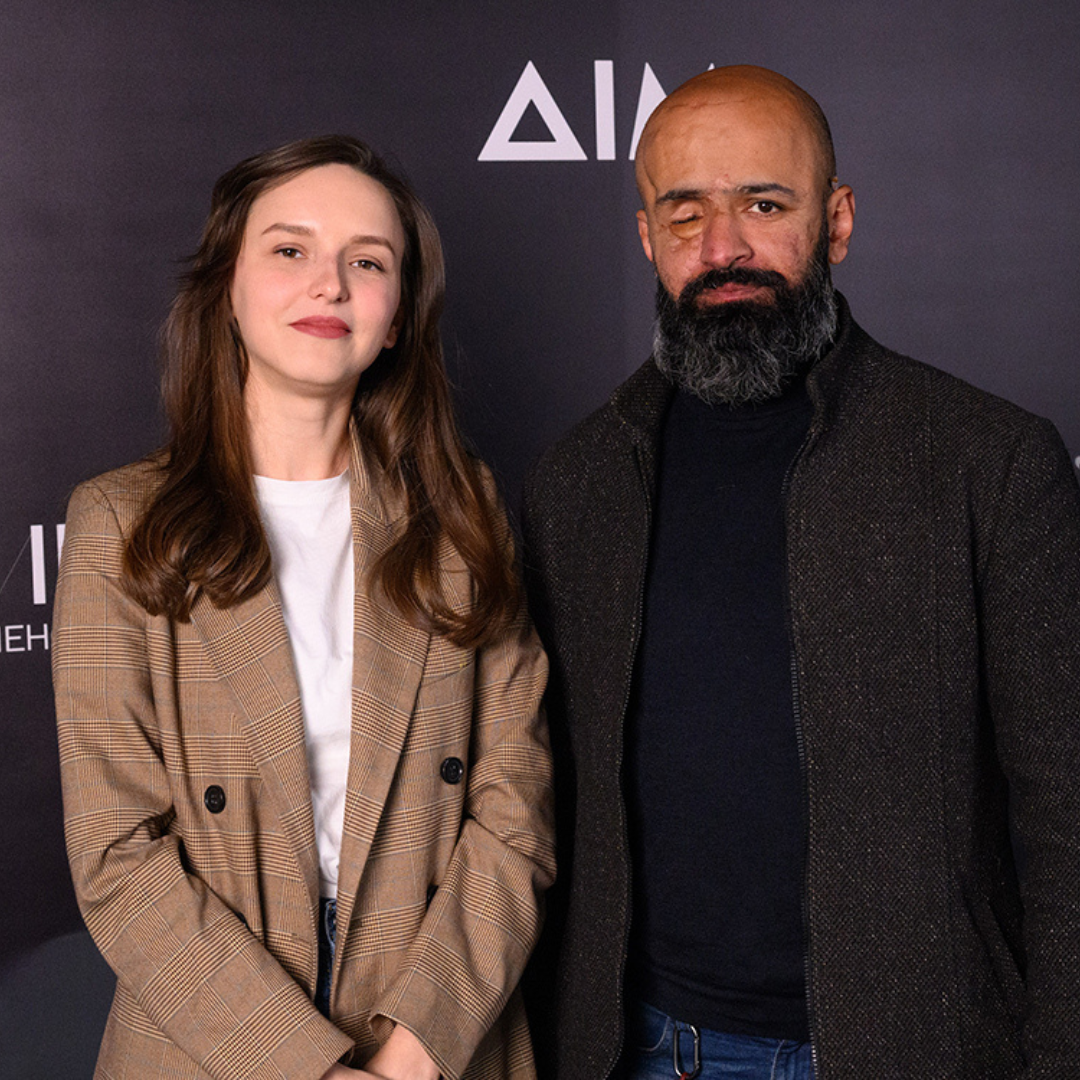
“There are at least one million people serving in the Ukrainian Armed Forces right now. By the end of Russia’s war against Ukraine, we’re expecting to have 1.5 million veterans. Together with their families, we’re talking about three million people. That is huge,” says Liubov Halan.
Liubov Halan is a co-creator and a head of the Human Rights Centre ‘Pryncyp’. The organisation, which means ‘Principle’ in Ukrainian, is advocating for institutional changes that would provide veterans with the services already guaranteed to them by law. She and her team help veterans and their families to understand complex legal language and to be empowered to fight for their rights.
“We need systemic answers for veterans so they can access concrete services and information. This includes studying the individual journey of a veteran so we can find the best ways to offer them aid,” she says.
“We aim to address systematic issues which exist in Ukraine, and which contribute to the gap between the law and its implementation. We cover the entire journey from the time a person joins the army to the moment they become veterans and are seeking institutional and other support,” Liubov explains.
It was Masi Nayyem who first came up with the idea for ‘Pryncyp’. He lost an eye in the summer of 2022 while serving in the army, a few months into Russia’s full-scale war against Ukraine. A lawyer prior to his military service, he was struck by the challenges of transitioning back to civilian life, the difficulties faced by a veteran with a disability in dealing with a highly bureaucratic system and the discrepancies between legislation and the reality of how this legislation is implemented. Understanding the enormity of the issue, he decided to take on the mantle of advocating for changes for all veterans.
Today, the initiative has expanded to fifteen people and it now runs six different projects focused on veterans’ rights and advocacy.
“We started by focusing on the veterans with a disability,” Liubov says, “Now, we are involved in the entire journey of a soldier from being the moment they are drafted to when they become a veteran. EED was our first donor, and the funding allowed us to start working, hire staff and to work on institutional development, advocacy, education, and analytics.”
The team’s first product is a rights navigator, which helps wounded veterans find their way around the complex legislation of civilian life post-service. The tool uses an algorithm that explains what steps they should follow depending on their individual cases.
“We launched our navigator as a self-help instrument for former soldiers and their families. It uses simple language to explain what the law says, explain the reality of how this law is implemented and it provides veterans with steps to follow to access services or to receive support. It tells people where to look for help, and what to do in case it is denied,” she continues.
She explains that the navigator is also a valuable tool for educating community members, civil servants, and healthcare professionals who are key service providers for the veterans, and it also has an important gender element. According to Pryncyp’s research, the majority of wounded veterans are men, but it is their mothers and wives who take on the functions of social workers, the management of their case, and medical issues for them.
“The navigator makes things easier for them,” she explains.
Liubov and her team are also collaborating with partner organisations that work with veterans. “We understand that only a united civil society can advocate for the rights of veterans. We work with more than ten different initiatives, coordinating activities, and developing joint positions on key issues,” she says.
Pryncyp and its partners are reaching out to local communities and are advocating for change at the governmental level to ensure that the veterans’ rights that exist on paper can be translated into reality with institutional backing and funding.
“For years, Ukraine lacked efficient veteran-oriented policies. Even if the law says that veterans can access free prosthetics and rehabilitation services, we don’t have the funding or infrastructure to provide that. We point out these gaps. It’s vital to improve our legal system to benefit everyone in the veteran community,” she says.
Pryncyp is also focused on creating a positive job market for veterans, as many former soldiers, particularly those with disabilities, face difficulties finding employment.
“We focus on the positive practices of employing veterans with a disability. We work with companies who are employing veterans, and we provide training and we work with them on accessibility. Given the huge number of veterans who will return from the war and who will need employment, it is vital we develop a systematic solution to enable this,” she says.
Liubov believes that Pryncyp’s work reflects the overall needs of Ukrainian society, where the role and rights of war veterans are becoming increasingly prominent. This work is also personal; many team members have close relatives who were wounded during their active service.
“There is great political will to address the issues we are raising. Our advocacy work will be decisive in the context of veterans’ policies in Ukraine in the following years,” she says.
This initiative was supported thanks to the contribution of the European Commission to EED.
This article reflects the views of the grantees featured and does not necessarily represent the official opinion of the EED.